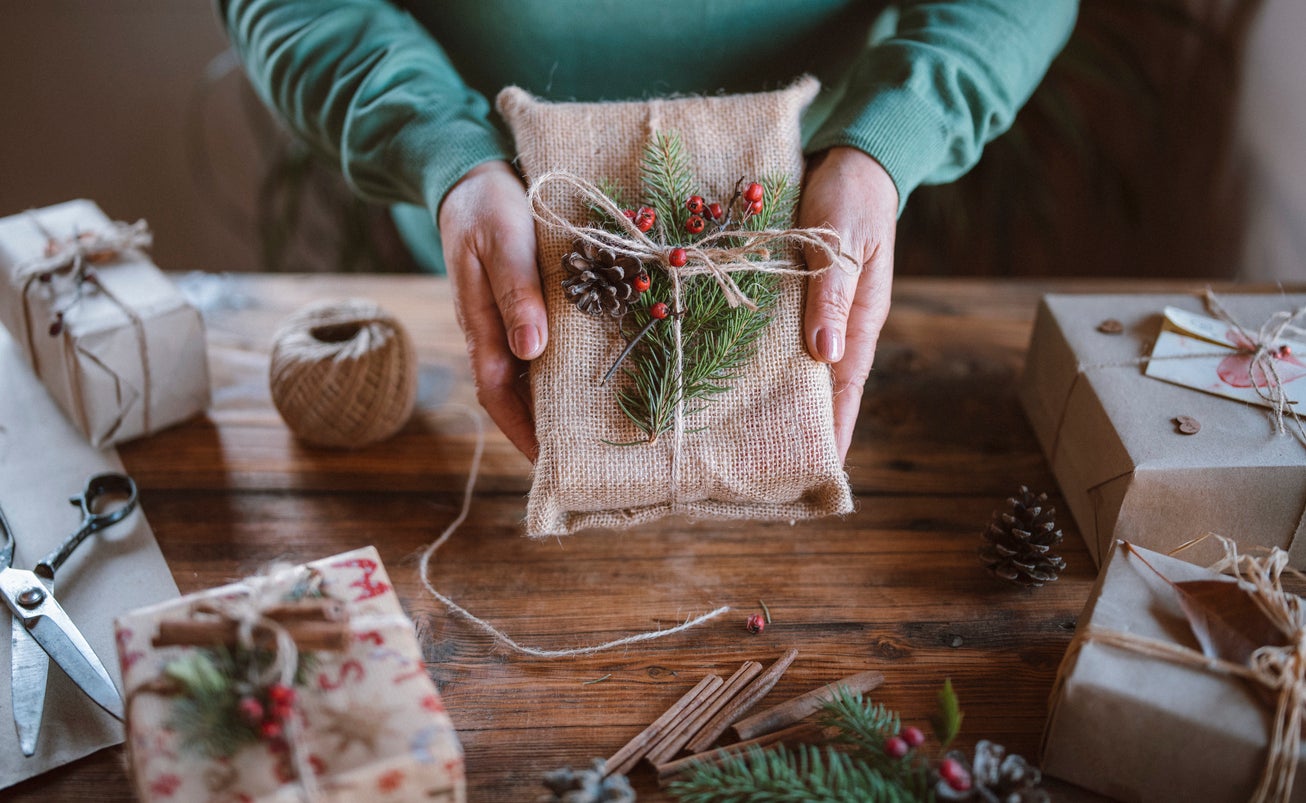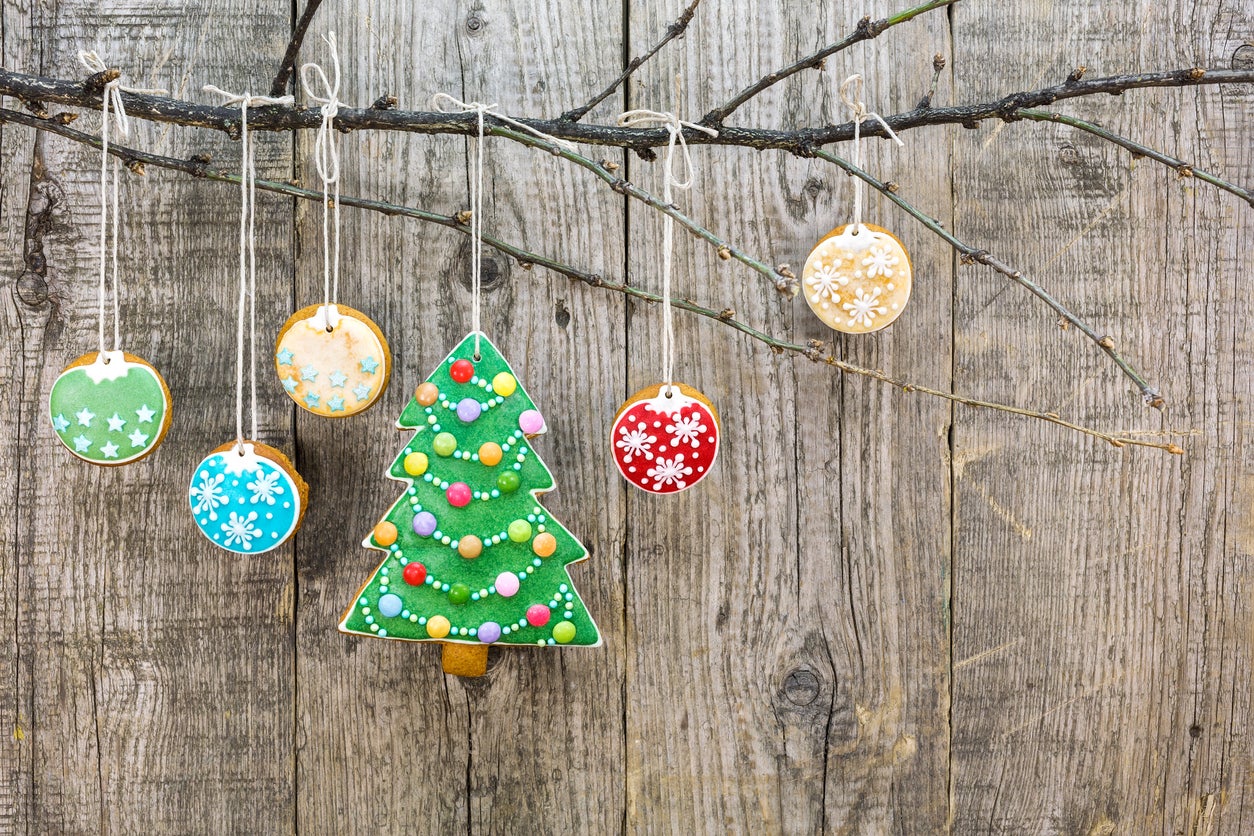How to have an eco-friendly Christmas
Make small changes to your festive traditions to demonstrate your commitment to the planet

Your support helps us to tell the story
From reproductive rights to climate change to Big Tech, The Independent is on the ground when the story is developing. Whether it's investigating the financials of Elon Musk's pro-Trump PAC or producing our latest documentary, 'The A Word', which shines a light on the American women fighting for reproductive rights, we know how important it is to parse out the facts from the messaging.
At such a critical moment in US history, we need reporters on the ground. Your donation allows us to keep sending journalists to speak to both sides of the story.
The Independent is trusted by Americans across the entire political spectrum. And unlike many other quality news outlets, we choose not to lock Americans out of our reporting and analysis with paywalls. We believe quality journalism should be available to everyone, paid for by those who can afford it.
Your support makes all the difference.Being green this Christmas doesn’t mean being a party pooper. No one wants to get stuck celebrating with righteous cousin Clover who makes everyone else feel guilty, but you can find a balance between being an eco-whinger and having fun.
It’s easier than you think to reduce your consumption and help the environment, by making very minor tweaks to your Christmas routine.
Packaging, for example, is not part of the yuletide glow but is a nasty byproduct of the season. GWP group has some shocking figures on how much unnecessary packing we get though as a nation, and this is likely to increase with more online shopping done this year in the pandemic.
The UK produces an additional 3 million tonnes of waste at Christmas and fills 100 million bin bags every year. Landfill produces high-levels of methane gas and CO2, as rubbish rots in the ground, causing global warming. And just one single tonne of landfill costs us £56 in taxes, which can pay for more than a few mince pies.
You don’t have to muster up your best Scrooge impression to have a more sustainable Christmas, follow our top tips for a very environmentally friendly (and fun!) festive season in 2021.

Rent a Christmas tree
We purchase eight million Christmas trees per year in the UK, although real trees have a much lower carbon footprint than artificial trees, they still contribute to a staggering amount of landfill waste. Even more worrying is that 14 per cent of plastic trees are tossed away each year.
Try buying a living potted tree this year that you can water and later put in your garden after Christmas, and use for years to come.
If you don’t have a garden and do have to dispose of a real tree – do it properly, many councils have collection services and will recycle these for you so there is no need to flytip.
Alternatively, rent a tree for the season. Companies like family business Love a Christmas Tree rents out real trees, which they will deliver and pick up - just don't forget to water it.
Try eco Christmas cards
The average person in the UK receives 17 Christmas cards, not bad for a popularity boost but not great for planet earth. We have to chop down one tree to make 3,000 Christmas cards. Do your bit in saving the trees this year by buying recycled Christmas cards, which are sold in many places.
We recommend 1TreeCards, which takes the concept of recycled Christmas to the next level and plants a tree (via their Eden Reforestation Projects) for every card bought. Their designs have envelopes made from 100 per cent recycled paper, designs are printed with vegan inks, and the sleeves are even plastic-free too, cleverly made out of corn and yam. Plus, the whole pack is made using renewable energy.
If you're short of cash why not up-cycle your old cards? This requires a bit of pre-planning (and saving cards from last year), but is easy to do with some imagination and some recycled card. Cut out a bold design to stick on folded recycled card, or do a collage of old Christmas card designs. And don't forget to tuck away the Christmas cards you get this year for next year's designs.

Make sustainable Christmas decorations
Don't even think about picking up the tinsel this year, instead, make your own beautiful decomposable decorations. These can be made out of mixed dried fruit (for garlands) or fresh fruit for pomander balls (literally cloves pushed into oranges), which smell divine.
Another idea, collect some pinecones or holly from your local park (if it's fallen to the ground), and spray it with eco-gold paint or douse it with plant-based glitter – DAZZLE does a great range of this. When this stuff hits soil or water it breaks down quickly.
Make your own wreath with coat-hanger wire and foliage and bake edible cookies to hang on the tree. And, if you are buying tree lights get solar ones or those with LED bulbs to reduce energy use.

Pre-loved gifts
A serious amount of unwanted Christmas gifts are thrown into landfill each year, some £42 million worth. Two good ways we to help with this excessive waste are to order pre-loved gifts and to sell your unwanted gifts so someone else can get joy out of them. Hundreds of pre-loved Christmas jumpers can be found on sites like Beyond Retro and Oxfam's online store, and for kid's Christmas wear and general clothing, toys and books try family business Stork Shop.
"Buying pre-loved is really the ultimate way for eco-conscious families to shop," says Stork Shop founder Helen Elfer. "It's a way to prolong the life of gorgeous outfits and gifts, there's less waste, no additional resources used to produce the items, less material ending up in landfill, and of course it costs a lot less than shopping brand new. Plus it feels amazing when Christmas shopping means joining the pre-loved movement and supporting other families by buying from them instead of trawling the high street."
Use recycled wrapping paper
We use an eye-popping 227,000 miles of wrapping paper each year in this country, which if rolled out would go around the world nearly 10 times. One way to bring this amount down is to unwrap presents carefully, save the paper and put it in a Christmas box to use the following year.
If you don't have loads of paper stored up already, consider buying wrapping paper made of 100 per cent recycled materials this year from companies like Re-wrapped, or independent designers like Sophie Botsford or Claire Fontaine, or use recycled brown paper and jazz it up with a biodegradable paper ribbon.
Eat less meat
The global impact of eating meat (livestock and poultry) contributes to an estimated 14.5 percent of anthropogenic greenhouse gas emissions. The UK carves up a whopping 10 million turkeys each Christmas. And while it might not be very popular with no-veg eating relatives cutting down on the meat we consume is one of the most effective ways to help the planet.
There are pretty good meat substitutes out there offering the look and feel of a proper Christmas dinner. The Tofurky Roast With Wild Rice Stuffing is a decent option too as is the Gardein Stuffed Turkey. Many supermarkets do Vegan No Pigs in Blankets, including Waitrose and M&S, you could try them and see if anyone notices.
If you simply can't do without the turkey, try ordering a smaller organic one, which if we all did would make a huge difference to greenhouse gas emissions and would reduce over all consumption.

Choose recycled Christmas crackers
There's a lot of cardboard involved in the very British tradition of Christmas crackers – which are often stuffed with more waste in the form of cracker jokes, crown hats, and disposable plastic toys.
Companies like British-based Nancy and Betty make truly beautiful hand-made crackers designs with bold colours, simple graphics and quality sustainable paper stock, which they say are hand-made by their elves. All are printed with vegetable-based ink, there are no plastic-free gifts inside and better still, one tree is planted for every box of crackers bought.
Drink eco booze
An estimated 500 million canned drinks are sold over the festive period, so if you consume cans make sure they are recycled properly, or better still buy glass-bottled booze.
Companies like The Original Small Beer have thought all about the bigger picture so you don’t have to when it comes to producing hoppy tipple. It’s managed to drastically cut down the water needed to brew its beer and uses 100 per cent renewable energy producing it.
Organic booze is another way to reduce the number of gasses emitted into the environment, try Dà Mhìle’s organic whiskey, Badger Mountain Riesling bursting with pineapple and citrus flavours, and the Vegan Vine Red Wine is rather moreish too.

Devour vegan sweet things
Eating vegan helps to avoid the environmental costs involved in industrialised animal farming. Swap out the dairy in your beloved Christmas snack this year, many retailers are already offering vegan versions of mince pies, Christmas puds and even vegan brandy butter.
We’ve rather enjoyed the The Hemp Pantry’s dollops of the stuff over Oggs Luxury Handmade Mince Pies.


Join our commenting forum
Join thought-provoking conversations, follow other Independent readers and see their replies
Comments